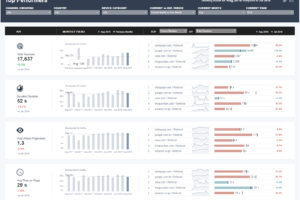Data engineering is designing and building data pipelines that transform and transport data into a high quality data that are used by analytics and decision-makers.
Through data pipeline, data engineers collect raw data from multiple sources and stores it into a single warehouse, process data, clean it until it becomes usable and available to users securely.
Modern data ecosystem includes a network of interconnected and continually evolving entities that include:
- Data, that is available in a host of different formats, structures, and sources.
- Enterprise Data Environment, in which raw data is staged so it can be organized, cleaned, and optimized for use by end-users.
- End-users, such as business stakeholders, analysts, and programmers who consume data for various purposes.
Emerging technologies such as Cloud Computing, Machine Learning, and Big Data, are continually reshaping the data ecosystem and the possibilities it offers.
Data Engineers, Data Analysts, Data Scientists, Business Analysts, and Business Intelligence Analysts, all play a vital role in the ecosystem for deriving insights and business results from data.
The role of a Data Engineer includes:
- Gathering data from disparate sources.
- Integrating data into a unified view for data consumers.
- Preparing data for analytics and reporting.
Managing data pipelines for a continuous flow of data from source to destination systems. Managing the complete infrastructure for the collection, processing, and storage of data.
To be successful in their role, Data Engineers need a mix of technical, functional, and soft skills.
- – Technical Skills include working with different operating systems and infrastructure components such as virtual machines, networks, and application services. It also includes working with databases and data warehouses, data pipelines, ETL tools, big data processing tools, and languages for querying, manipulating, and processing data.
- – An understanding of the potential application of data in business is an important skill for a data engineer. Other functional skills include the ability to convert business requirements into technical specifications, an understanding of the software development lifecycle, and the areas of data quality, privacy, security, and governance.
- – Soft Skills include interpersonal skills, the ability to work collaboratively, teamwork, and effective communication.



